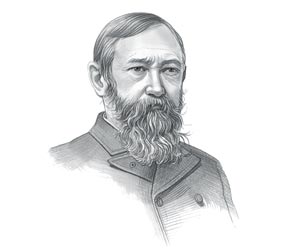|
|
|
|
|
The 51st Congress also approved naval expansion These costly actions earned the fifty-first presidential administration the name of the "Billion Dollar Congress". The laws passed during Benjamin Harrison's term in office cost the United States government over a billion dollars.
Billion Dollar Congress Facts for kids The 51st legislature was effective from March 4, 1889, to March 4, 1891, during the first 2 years of the administration of President Benjamin Harrison Republicans won control of both of the United States Senate and the United States House of Representatives after the 1888 presidential election A Congress lasts for two years, with each year constituting a separate session. The Republican victory broke the period of divided party government The Senate President was Levi P. Morton and the House Speaker was Thomas B. Reed. Congressional action is planned and coordinated by party leaders The Republican majority government were able to streamline House rules and prevented the minority party from obstructing the legislative process. Legislative powers are granted by Article I of the U.S. Constitution Only the House is able to originate revenue legislation, but the enactment of law always requires both chambers to separately agree to the same bill before presenting it to the President. The President has influence on the legislative process, recommends an annual budget and has the power to veto legislation of bills passed by the House of Representatives and the Senate. Thomas B. Reed, Republican Party leader and speaker, became known as a “czar” for his use of the House rules (the Reed Rules) that helped achieve the goals of his Republican majority. The changes and streamlining of the House rules led by together with the majority, unified government and Republican president led to the laws that were passed by the "Billion Dollar Congress" The laws passed were:
Significance: The extravagant and lavish spending by the Republicans was highly criticized by |
| US American History |
| 1881-1913: Maturation Era |
|
|
|
|
|
First Published2016-04-19 | |||
|
Updated 2018-01-01 |
Publisher
Siteseen Limited
| ||
|
|

